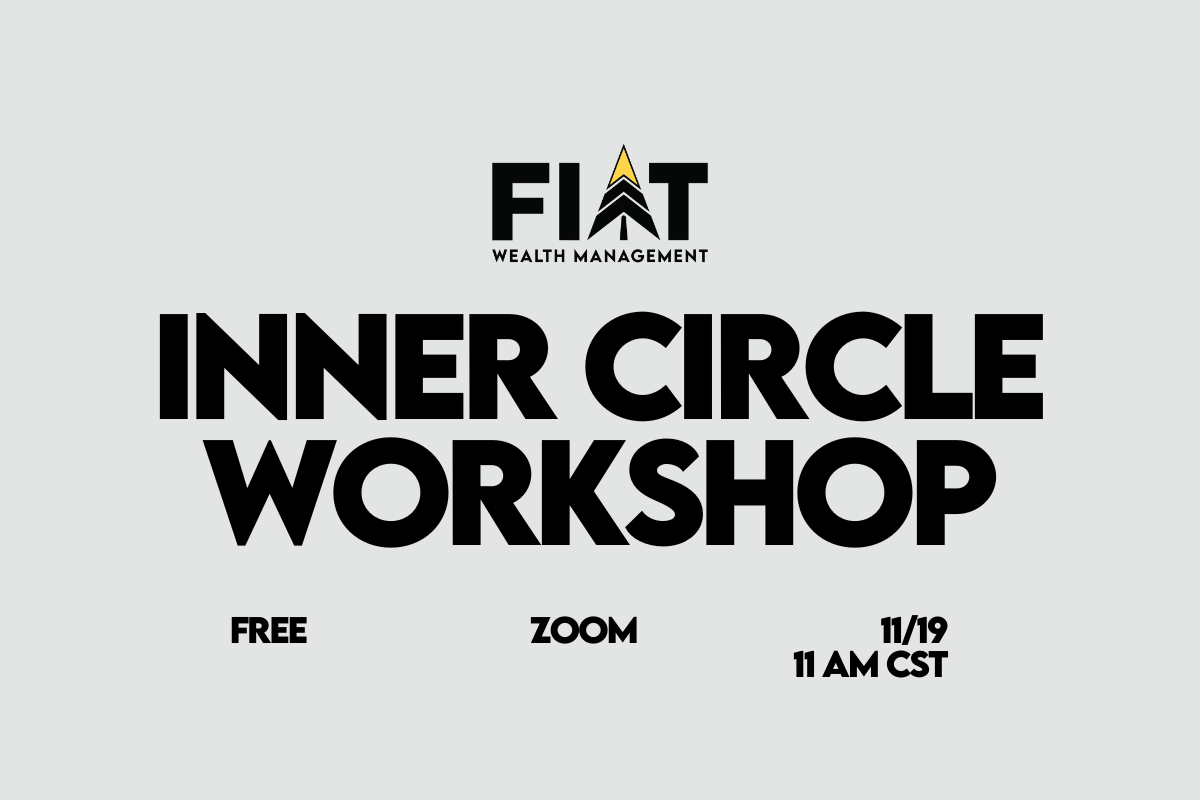As another year draws to a close, it's time to take stock of where we are and make some plans for our financial futures in 2023. It can be hard to know where to start when setting New Year's resolutions, but don't worry - we've got you covered! In this blog post, we'll look at the most important areas of your finances that could use a bit of attention and share actionable tips on how to get them into shape come January 1st. Whether you want to start saving more money or finally open that dream business venture, with these simple steps you'll be well on your way toward achieving financial freedom in the new year.
Why it’s Important to Plan for the New Year Financially
The new year is a time for reflection and resolutions. Many people use this time to set goals for themselves, both personal and professional. But one goal that is often overlooked is financial planning. Without a plan in place, it can be easy to fall into bad money habits and end up in debt.
But with a little bit of effort, you can set yourself up for a successful year financially.
With a little bit of planning, you can have a successful year financially. So don't wait any longer, get started today!
Meet with a Financial Advisor
When it comes to money and personal finance, there’s no one size fits all approach. What works for one person might not work for another, and there are a lot of different factors to consider when it comes to managing your finances. That’s where a financial advisor can come in handy.
A financial advisor can help you create a budget, figure out how to save for retirement, and make other important financial decisions. They can also offer advice on specific investments, insurance policies, and other financial products.
If you’re thinking about meeting with a financial advisor, here are a few things to keep in mind:
- Do your research. Not all financial advisors plan the same or have the goals for you in mind, so it’s important to do your research and find one that’s right for you. Make sure to ask around and read reviews online to find someone who has a good reputation and knows what they’re talking about.
- Ask questions. Don’t be afraid to ask the advisor questions about their experience, their fees, and their investment philosophy. This is YOUR money we’re talking about, so you want to make sure you understand everything before making a decision.
- Get started today. Don’t put off meeting with a financial advisor – the sooner you get started, the sooner you can start making progress on your financial goals.

Contact one of our advisors today and see what our team has to offer.
Open a Retirement Account
A retirement account is a savings account specifically for use in retirement. It is important to start saving for retirement as early as possible, and a retirement account is one way to do that. There are a few different types of retirement accounts, but the most common is a 401(k) plan. Most Employers offer 401(k) plans, but if you are self-employed, a solo 401(k) is a great option for you.
With a 401(k) plan, you contribute money to the account regularly. The money grows tax-free, and you don't have to pay taxes on it until you withdraw it in retirement. This allows your money to grow more quickly than if it were in a regular savings account.
Another advantage of a 401(k) plan is that your employer may match your contributions. This means that for every dollar you contribute, your employer will contribute another dollar. This can help you save even more money for retirement.
There are other types of retirement accounts as well, such as IRA accounts and Roth IRA accounts. With an IRA account, you contribute money regularly, but just like a 401(k), you have to pay taxes on the money when you withdraw it. This can be a disadvantage if you expect to be in a higher tax bracket in retirement. However, Roth IRA accounts have many advantages, including the ability to withdraw your contributions without penalty or taxes, but you will need to pay the tax upfront on the contributions.
Let this year be the year you start planning for your retirement. Don't wait any longer, open a retirement account today and watch your money grow.
Pay Off Debt
Debt, debt, debt. It seems like everywhere we turn these days there’s yet another story about someone who’s in over their head with debt. And, unfortunately, it’s often those who can least afford it who are struggling the most. How did we get here?
There are a lot of reasons why people end up in debt, but one of the most common is simply spending more than they can afford. Credit cards, student loans, car payments - all of these can add up quickly, and before you know it you’re swimming in debt. Another reason people fall into debt is that they don’t have an emergency fund. If something unexpected comes up - a medical bill, car repair, etc. - and they don’t have any money saved up, they often have no choice but to turn to debt to cover the cost.

Whatever the reason may be, getting out of debt can be tough. But it’s not impossible. There are a few things you can do to get started:
- Create a budget and stick to it. This is probably the most important step in getting out of debt. When you know exactly how much money you have available each month and what you need to spend it on, it becomes a lot easier to stay within your budget.
- Start saving for emergencies. This is another important step in becoming debt free. If you have money saved up for emergencies, you won’t have to rely on credit cards or loans when something unexpected comes up.
- Get help if you need it. There are a lot of resources available for people who are struggling with debt. Talk to your bank or credit union about getting a loan or credit card consolidation loan. Several non-profit organizations offer free or low-cost counseling services for people who are struggling with their finances.
With a little bit of hard work and some patience, you can get yourself out of debt and start building a brighter financial future for yourself and your family.
Review Beneficiary Designations
Don't wait until it's too late to make sure your accounts are in order - resolve to review and update your beneficiary information for life insurance policies and any other types of investment accounts requiring the designation. It's an easy fix that will save your loved ones a whole lot of stress down the line. Get ahead of the game by requesting a copy of your beneficiary designation from the company or financial institution managing your assets.
Staying Motivated during your Financial Planning Journey
It can be easy to lose motivation throughout your financial planning journey. After all, it's a long and often difficult road to follow. However, there are a few things you can do to stay motivated and on track:
Create Short-Term and Long-Term Goals
Having short-term goals gives you something to work towards shortly, while long-term goals provide a roadmap for the years ahead. Both are important in keeping you motivated and focused on your financial planning journey.
Break Down your Goals into Smaller Steps
When your goals seem too daunting or impossible to achieve, break them down into smaller steps that you can complete easily. This will help you stay motivated and keep moving forward.
Find a Supportive Community
When you have people rooting for you, it's much easier to stay motivated throughout your financial planning journey. Seek out a supportive community of people who share your values and are looking to achieve similar goals.
Find a Personal Finance Mentor
A personal finance mentor can help guide you through the process of financial planning and provide support when things get tough. Having someone to talk to and learn from can make all the difference when it comes to staying motivated.
When it comes to staying motivated throughout your financial planning journey, it's important to find what works best for you. By setting goals, breaking them down into manageable steps, and finding a supportive community, you'll be well on your way to achieving success.
Now that you know all the reasons why it’s important to get your financial life in order, it’s time to start planning for the new year. Luckily, this year can be enjoyable while making good financial decisions and we have just the book for you. Spending Money and Having Fun: Your Practical Guide to Retirement is full of great tips on how to stay motivated throughout your financial journey. Check it out today!
This page is a publication of Fiat Wealth Management, LLC. The firm is registered as an investment adviser and only conducts business in states where it is properly registered/notice filed or is excluded from registration requirements. Registration is not an endorsement of the firm by securities regulators and does not mean the adviser has achieved a specific level of skill or ability.
The information presented is believed to be current. It should not be viewed as personalized investment advice. All expressions of opinion reflect the judgment of the authors on the date of publication and may change in response to market conditions. You should consult with a professional advisor before implementing any strategies discussed. Content should not be viewed as an offer to buy or sell any of the securities mentioned or as legal or tax advice. You should always consult an attorney or tax professional regarding your specific legal or tax situation.













.png)